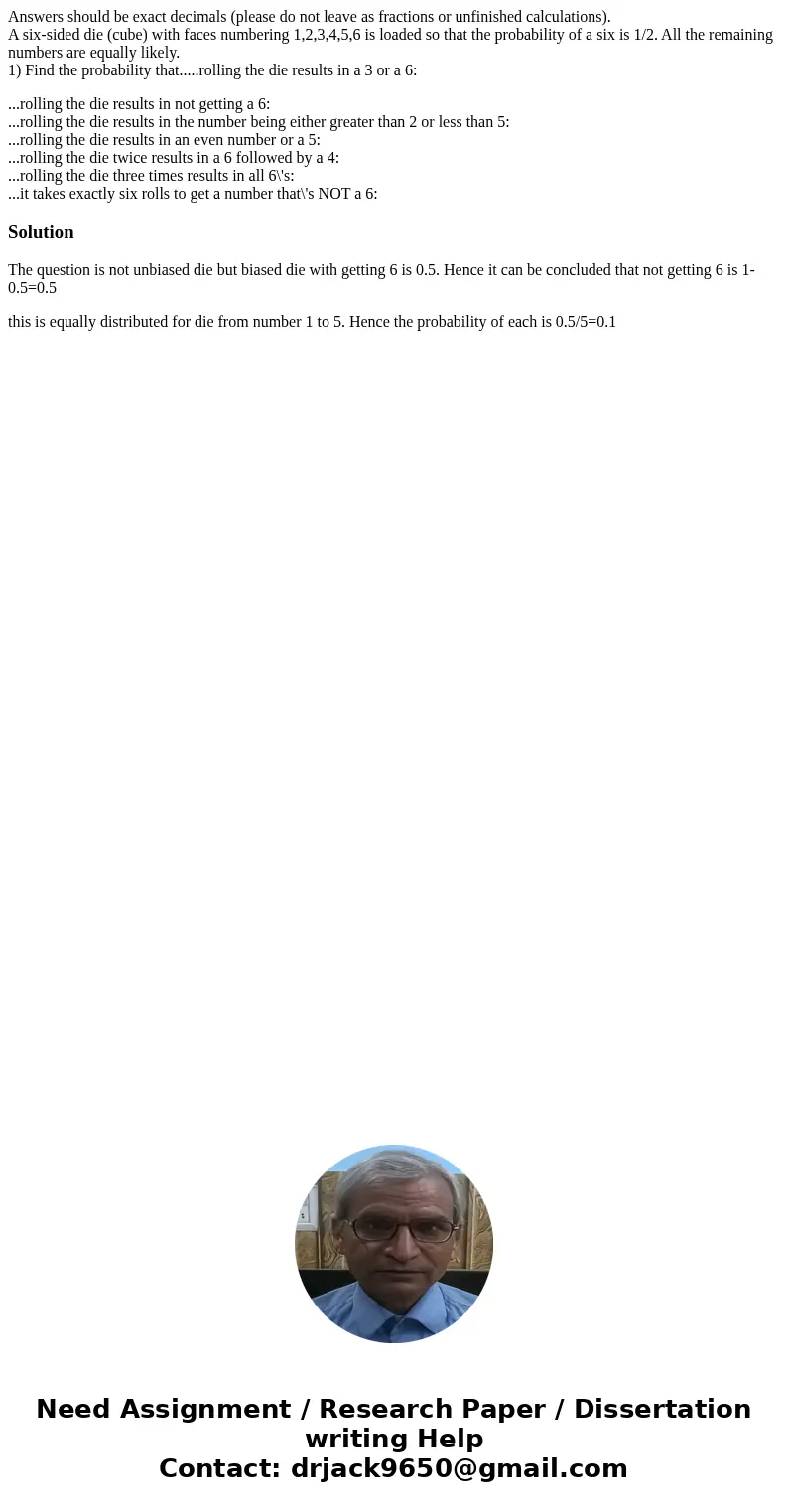Answers should be exact decimals please do not leave as frac
Answers should be exact decimals (please do not leave as fractions or unfinished calculations).
A six-sided die (cube) with faces numbering 1,2,3,4,5,6 is loaded so that the probability of a six is 1/2. All the remaining numbers are equally likely.
1) Find the probability that.....rolling the die results in a 3 or a 6:
...rolling the die results in not getting a 6:
...rolling the die results in the number being either greater than 2 or less than 5:
...rolling the die results in an even number or a 5:
...rolling the die twice results in a 6 followed by a 4:
...rolling the die three times results in all 6\'s:
...it takes exactly six rolls to get a number that\'s NOT a 6:
Solution
The question is not unbiased die but biased die with getting 6 is 0.5. Hence it can be concluded that not getting 6 is 1-0.5=0.5
this is equally distributed for die from number 1 to 5. Hence the probability of each is 0.5/5=0.1

 Homework Sourse
Homework Sourse